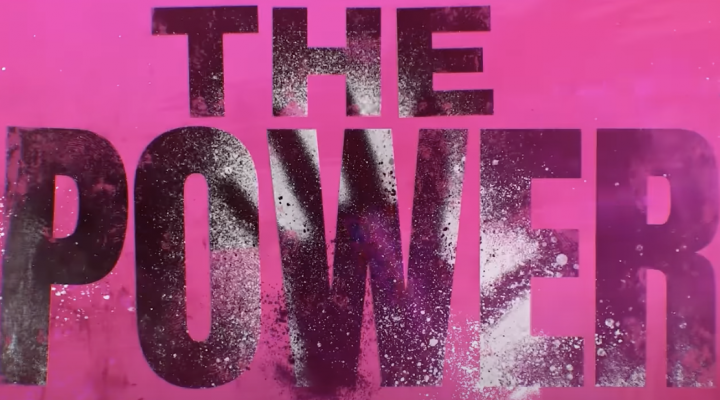Then turning toward the woman, (Jesus) said to Simon, “Do you see this woman?” — Luke 7:44
My mother-in-law and her brother often use a repeating trope: “When the aliens come” we’ll be ready or not ready because we did this thing or neglected to do this other thing. They, like I, have consumed a lot of science fiction.
As ridiculous as these statements may seem, we don’t know what the future holds. Paul speaks to this in Corinthians chapter 12, “For now we see only a reflection, as in a mirror, but then we will see face to face. Now I know only in part; then I will know fully, even as I have been fully known.”

Julia Goldie Day
Maybe aliens are a possibility. There is just no way to fully know. I love how these imaginings open our minds to the endless possibilities of the story of God and humans (and maybe aliens) on this planet earth.
How we see and know God and each other has a crucial part to play in the now and in the future.
We often neglect the constant work of reimagining God, reverting to old and less-useful tropes like “Women cannot lead men,” and “The Bible says it, and I believe it.”
It’s about time to delve into new imaginings of God and how God sees us, particularly women. I hope we can begin to see the recent open misogyny in the actions of the Southern Baptist Convention as a learning opportunity that must not be missed: How are we also guilty in the way we see women?
“How are we also guilty in the way we see women?”
It’s easy to fall into the trap of being grateful that we aren’t like the leadership of the SBC. To see ourselves clearly in the mirror, we must ask: Do we only offer lip service in support of women but don’t hire them as senior pastors? Do we only empower women to occasionally preach on low-attendance Sundays but deny them full leadership at the table? Do we pat ourselves on the back for having a female minister on staff but are very willing to set her up to fail or let her burn out? Do we punish women for having children, needing child care or a more flexible schedule to accommodate their need to serve their families? Do we call women arrogant or manipulative for complaining about sexual harassment or for speaking up about any issue at all?
When, or if, the aliens (or Jesus) come, will we be able to say we are seeing women clearly, more fully as Jesus did?
I recently began watching a series on Amazon Prime called The Power. I found it especially fascinating while watching in real time the SBC vote to disallow churches with women as pastors, while ignoring decades of sexual abuse and coverups.
Wikipedia describes The Power like this: “The world of The Power is our world, but for one twist of nature. Suddenly, and without warning, all teenage girls in the world develop the power to electrocute people at will. It’s hereditary, it’s inbuilt, and it can’t be taken away from them. Coming alive to the thrill of pure power: the ability to hurt or even kill by releasing electrical jolts from their fingertips, they rapidly learn they can awaken the Power in older women. Soon enough nearly every woman in the world can do it. And then everything is different.”
In The Power series, we see an imagining of what it might be like if women suddenly found themselves with more power than men. Everything is different from that point forward, for better or for worse. It is a fascinating idea to imagine the female body could evolve to develop a built-in electric power self-protection system.
At first it seems the new organ granting girls and women this power is biological, but my theory (again from consuming a lot of sci-fi) is that it is alien. As this power takes hold, religion plays a heavy part in the story of the girls and women we see portrayed around the globe.
One main character, known as Eve, hears a woman’s voice in her head that she thinks is God — prompting her to act. Eve works to manipulate others with the help of this female voice and her power so that she will become a powerful religious leader.
In one electrifying scene, Eve and the girls she disciples are in the ocean. Eve, following the voice of this Mother God, uses her electrical power to shock the bodies of all the girls to suddenly jerk backward in the ocean water in unison, a baptism scene.
I haven’t read the book the series is based on. I don’t want to read a spoiler until I’ve watched upcoming seasons, but I’m guessing — whether or not I’m right about the aliens — humanity has a lot to learn in this new reality where power has shifted.
Eve may have been deceived once again.
“How we see, lift up and empower women is consequential.”
This teaches us something valuable: How we see, lift up and empower women is consequential. Our theology matters because it has real-life implications with real-life harm, death and destruction. Just look at the hundreds of women and others who have suffered sexual abuse in SBC churches while male abusers are passed on from church to church without any form of accountability from the denomination.
In this recent SBC annual meeting, I wondered when I saw men and even women grasping for power and ignoring abuse while empty of love. What Jesus would say? In John’s Gospel, Jesus says he came so that we might have life, abundant life. When we mistakenly think power is the answer, Jesus shows us another way of life, of living in service and love.
We must see women as equal image bearers of God, not because we want to take power away from men, but because we want each person, all people, to be seen as God sees them — equally powerful in love. Partners in the gospel.
When we seek to exert power over others, especially in our theology, we aren’t ready for Jesus to come and judge us rightly. The low will be lifted up but not over another. Jesus leads us to a way of love that is more shocking and more difficult to believe than aliens or electricity flowing from women’s fingers. The question is, are you ready to lay down your power so that others can be lifted up and live in love?
We will see Jesus face to face, as the Apostle Paul says, and we will be fully known. There is no hiding our desire for power from Jesus, whether the aliens come or not.
Even though it may be painful to turn the mirror toward our own reflections, I wonder if what we will see there is alien to God’s good news of oneness in Jesus Christ.
Julia Goldie Day is an ordained minister within the Cooperative Baptist Fellowship and lives in Memphis, Tenn. She is a painter and proud mother to Jasper, Barak and Jillian. Learn more at her website or follow her on socials @JuliaGoldieDay.


